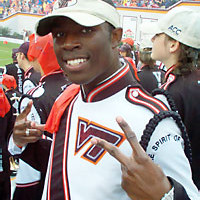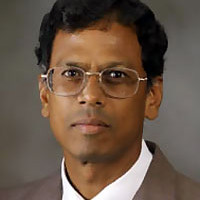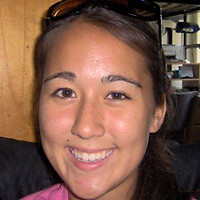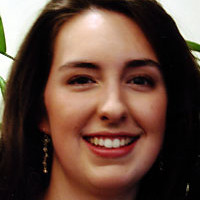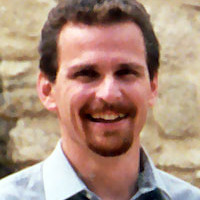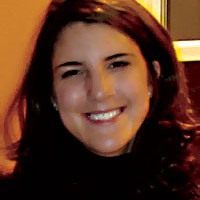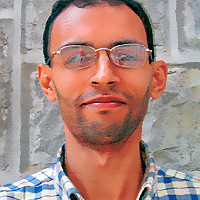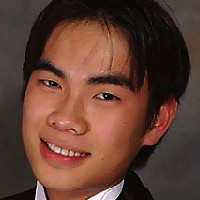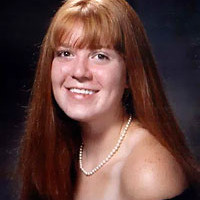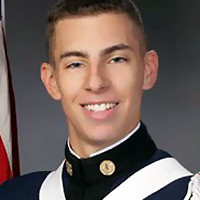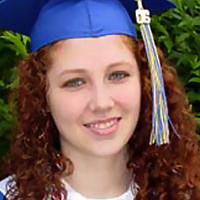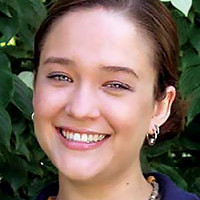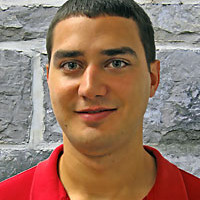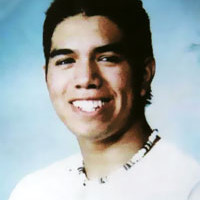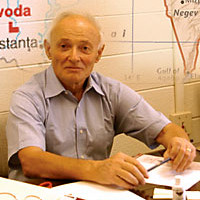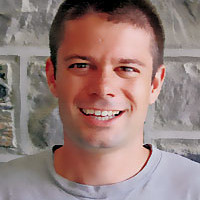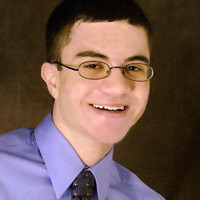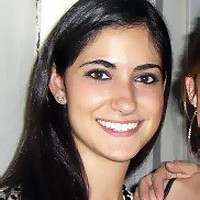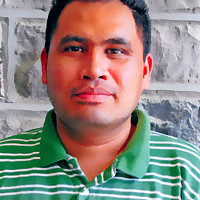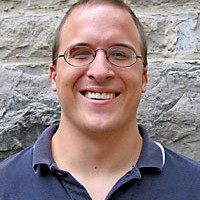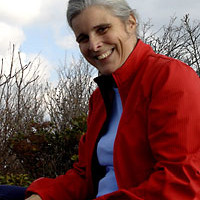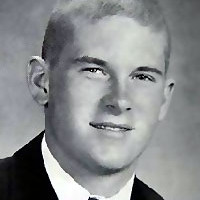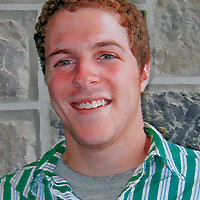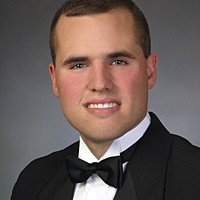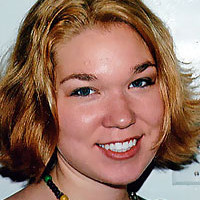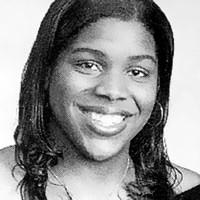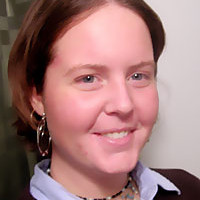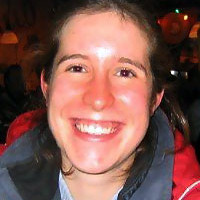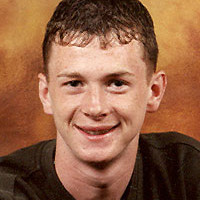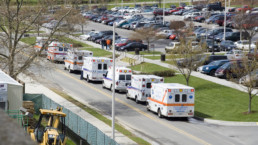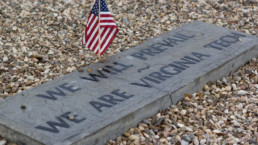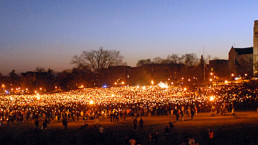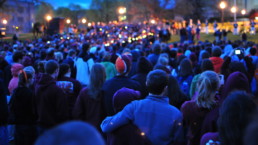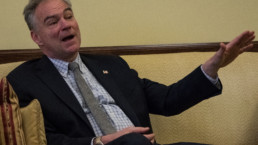Since the April 16 tragedy, when 32 lives were lost, three Virginia Tech students have honored and celebrated the lives of the victims through the reading and presentation of their bios. The event, however, will not occur this year.
Colleen Thon, Class of 2014, started the project. She first became involved in the April 16 commemorative as the HokieBird. She attended a vigil on April 16, 2011, as the mascot. In the following years, she organized the reading of the biographies of the 32 victims.
“I started the event because I found that a lot of students who weren’t there that day, (myself included), sometimes misplaced the day of April 16th for a day to feel a sense of school spirit and unity without also remembering the victims themselves. I hated the fact that the shooter was more well known than the 32,” Thon wrote in an email to the Collegiate Times.
Moustapha Ouattara, a senior studying political science, took over the presentation in April of 2015, after hearing Thon’s presentation his freshman year.
“I attended, really liked the way (Thon) did it and talked to her afterwards about taking it over because she was a senior at the time,” Ouattara said. “Ever since she left, after that, I’ve continued it for the past three years. This will be my third year, personally.”
From attending to his first time reading the bios, telling the stories of the 32 victims has been emotional for Ouattara, even though he did not know any of the individuals personally.
“It’s been quite the roller coaster … So, having gone to the first one, the way Colleen did it, I had never really explored any of the 32’s lives,” Ouattara said. “Just going through that, and understanding who they were even though you never met them, you felt a certain closeness to them … You really do feel a closeness when you’re reading the bios. It’s almost as if you knew them, that they were a part of you. You start to realize certain facts and tidbits about some of them that you see in yourself. It’s really sad …
“It’s tough. The very first time I did them, I couldn’t even get through all of them without having to stop and catch (my) breath and, you know, the sniffling starts … Once you see that in the audience, people are starting to tear up, and cry and dabbing their eyes, it makes you feel more at ease that you’re not the only one breaking down … These were human lives that once upon a time walked the campus that you’re walking now. Their lives were cut far too short.”
Ryan Plummer, an alumnus of Virginia Tech who is currently in the university’s master’s program in business analytics, has aided Ouattara in preparing for and in reading the bios of the victims for the past two years.
Unlike Ouattara, Plummer was in Blacksburg on April 16. He was getting his license and registration renewed a few blocks away, when a friend walked by and told him what was happening. He got to campus as soon as he could.
“I went straight to the building,” Plummer said. “I knew many people that had classes in that building and I think the last ambulance was just leaving when I got there. The only thing I remember is that was the first time I had seen a blood stain on the ground … There was just one giant spot on the sidewalk, they didn’t have the chance to block anything off, so everything was chaos … I had the picture (of the blood stain in) my phone for a while to remind me why I had the goals I had in life and with the military.”
The semester after the shooting, Plummer enlisted in the Marines. After he finished his enlistment, he came back to Virginia Tech and graduated in the spring of 2016.
“If I ever said I had a righteous fury in my life, it was that day. I promised myself that if anything like that ever happened again, I’d know how to stop it, because in that point in my life I don’t think I could have,” Plummer said.
Every year, planning the bio readings requires much coordination and preparation from both the administration and those leading the readings.
“It’s been tough to nail down a room every year we do it, so it started out the first year I did it in a small conference room in a residence hall, actually. And then it moved on. Last year, we did it in the GLC … and this year we have yet to nail down a spot,” Ouattara said. “But with all the events happening with the 10th anniversary, we don’t even know if we are going to have time to do it because we’ve been trying since last semester to work with administration to nail something down, but there’s just, either you get the runaround or they don’t even reply to emails. Who knows if it will happen this year, sadly.”
Plummer believes that the pushback came from the administration at one time, but things have changed with the switch from former President Steger to President Sands.
“When I got back, Moustapha told me that there had been some resistance from one of the previous presidents of Virginia Tech. They didn’t want to focus on the negatives of it. They thought that the shooting was a negative that would deter people, and the new president embraced it, saying it was a part of our history,” Plummer said. “4/16 showed how Virginia Tech is a family, and part of being a family is you never forget those that came before you.”
Despite Sands’ acceptance of the bio readings, resistance has existed since Ouattara and Plummer took over the project, and comes from more than just the administration.
“When I first started, there was a lot of pushback from people who … said you know, it’s been X amount of time you should just stop and let the memories fade away. It’s a bad image on the university, it affects admissions,” Ouattara said. “I don’t see it that way, I see it as, you know, these are lives that were cut short, and we’re remembering them, we are honoring them by doing this, it’s not because we want to sadden the day even more. It’s no different, I tell people all the time, than let’s say a Pearl Harbor or 9/11 and other unfortunate historical acts, but what we do on those days, we remember and we honor them, regardless of what the tragedy is, we have to realize that this tragedy will forever be a part of this university.”
It is unfortunate that due to these issues the event will not take place this year. However, Ouattara and Plummer believe that, yes, the April 16 shooting did occur, and, yes, it was a tragedy, but the lives of the victims should be celebrated and Virginia Tech is more than just this incident.
“There’s a lot of support for those who were affected by it,” Ouattara said. “Everyone comes together, and through a tragedy you have a sense of togetherness and community that supersedes even all the pain that comes from that.
“April is a month of giving back and living out the motto Ut Prosim (That I May Serve), and, yes, April 16 is a part of that, but there is so much more in terms of growth and personal relationships, academics, sports, to really find yourself as a student and as a future professional, than just saying this one event is going to define my university life.”
Although Thon, Plummer and Ouattara put a great deal of effort into this presentation and its research every year, they are not the focus of the event.
“It’s not about me, it’s not about Ryan, it’s not about Colleen — it’s about those 32,” Ouattara said.
Ryan Christopher Clark
Ryan Christopher Clark, known to his friends as “Stack,” leaves memories that will be forever cherished by his immediate and extended family, band mates, residents in his dormitory, colleagues, and friends. Ryan was born in Landstuhl, West Germany, on May 29, 1984, to Letitie and Stanley Clark. He grew up in Martinez, Ga., and graduated from Lakeside High School in May 2002. There, he was a member of the Lakeside Marching Band and the Boy Scouts of America. He was active in many service organizations, including Communities in Schools of Augusta/Richmond County Teen Health Corps and Golden Harvest Food Bank. He was also the musical director at Camp Big Heart. At Virginia Tech, Ryan maintained a 4.0 GPA and earned a bachelor of science with a triple major in psychology, biology, and English. He was also a distinguished campus leader. He played the baritone in the Marching Virginians university band and was a resident advisor in West Ambler Johnston Hall. He also was an advisor in the Imaginarium programming resource center and worked at West End Market. “[Stack] was a wonderful part of our baritone section,” says friend Angela Pollock. “He was such a fun, loving, and delightful person to be around. He cared so much for other people and would befriend anyone. I was so blessed to play the baritone with him in the Marching Virginians. My favorite memories of Stack are of choreographing different dances to the drum line during Virginia Tech football games. He was a light and a joy! Stack will be missed by many, and memories of him will never be forgotten.”
Courtesy of Virginia Tech
G.V. Loganathan
Dr. G.V. Loganathan, Via Department of Civil and Environmental Engineering The high regard and fondness that students in the Via Department of Civil and Environmental Engineering feel for Dr. G.V. Loganathan is a reflection of the fact that they were his top priority. Phrases such as “the best professor I ever had,” “the kindest person I’ve ever met,” and “incredibly wise and gentle” are common among the tributes paid to Dr. Loganathan by undergraduate and graduate students. Born in the state of Tamil Nadu, India, in 1954, G.V. attended Madras University and the Indian Institute of Technology in Kanpur before journeying to the U.S., where he earned a Ph.D. in civil engineering at Purdue University. In December 1981, he joined the faculty of Virginia Tech and embarked on a remarkable career as one of the university’s most accomplished educators and one of the nation’s most respected researchers in the fields of hydrology and water resources systems. Dr. Loganathan published more than 150 peer-reviewed papers in major water resources journals throughout the U.S. and abroad. His research findings have been used extensively by municipal water supply professionals. Much of Dr. Loganathan’s time was devoted to training future generations of engineers and engineering faculty. In addition to the multitude of undergraduates who learned the principles and practices of water resources engineering under his guidance were numerous graduate students. G.V. directly supervised about 50 Ph.D. and master’s degree students at Virginia Tech, and many of them have flourished as faculty members at major universities. Virginia Tech recognized Dr. Loganathan’s talent as an educator and his exceptional devotion to students by presenting him with virtually every teaching honor offered by the university, including the 2006 W.E. Wine Award for Excellence in Teaching, as well as four College of Engineering awards and the Via department’s Outstanding Faculty Award. “Professor Loganathan was an exemplary educator who cared greatly for his students and their well-being,” said Dr. William R. Knocke, head of the Via department. “He was a kind soul, pure in heart, who taught us through his words and actions how to answer the calling to be a teacher, a mentor, and a beloved friend.” Dr. Loganathan is survived by his wife, Usha, and his daughters, Uma and Abhi, who characterized him in his obituary as “the best father a daughter could hope to have, and a loving husband.”
Courtesy of Virginia Tech
Mary Karen Read
Mary Karen Read, a freshman majoring in interdisciplinary studies, was born on Jan. 30, 1988, at the U.S. Army hospital in Seoul, South Korea. She lived in Texas, California, Seoul, Tennessee, and Virginia Beach before settling into her new hometown of Annandale, Va., for middle and high school. Mary was contemplating a career in elementary education. On campus, she was a member of Campus Crusade for Christ and had applied to be a Bible study leader. She was to have been notified of her acceptance on Monday, April 16. Her deep faith was evident in every aspect of her life. Mary was also an avid clarinet player who was a member of the concert band. Although she initially found the size of the Virginia Tech campus and student body to be daunting, Mary was working hard to assimilate, spending time on campus with friends from her hometown, her roommate, and a growing number of new acquaintances. Mary had recently started a job serving pizza and pasta in one of the campus dining halls and was considering joining a sorority. Prior to Virginia Tech, Mary was enrolled in the International Baccalaureate Program at Annandale High School, where she was a member of the National Honor Society, the French Honor Society, and the Tri-M Band Honor Society. She was president of the Annandale High School band, where she was a clarinet section leader. She was also a member of Annandale’s Homecoming Court, played lacrosse for two years, and participated in winter color guard for four years. Mary loved spending time with her family and friends, especially on trips to the mountains, the beach, and the lake and was happiest when helping others, especially children. She was renowned for her beautiful, constant smile and sweet personality. More than anything, she relished her role of big sister to siblings Stephen (11), Patrick (4), Hannah (4), Brendan (2), and Colleen (10 months). Mary is sadly missed by her father and stepmother, Pete and Cathy Read of Annandale; mother and stepfather, Yon Son Yi Zhang and Dr. Zhang of Palisades Park, N.J.; and all of her aunts, uncles, and cousins.
Courtesy of Virginia Tech
Rachael Elizabeth Hill
Rachael Elizabeth Hill of Glen Allen, Va., loved to read—especially novels and the Bible. An accomplished classical pianist, she had studied piano since she was six years old. Rachael had definite educational goals. Although she had just started college last fall, she knew she wanted to earn a Ph.D. in biochemistry, specializing in nanotechnology. The daughter of Allen and Tammy Hill, she was a 2006 graduate of Grove Avenue Christian School in Richmond. The entire class of 2006 was exceptionally close. Their consensus, and that of all those who knew Rachael well, is that it is difficult to capture the beauty, intelligence, poise, leadership, and other wonderful traits that Rachael possessed. She enjoyed classic movies, playing volleyball, shopping for shoes, and hanging out with her parents. Rachael was perpetually prepared. One of her beloved scriptures is Song of Solomon 8:5, “Who is this coming up from the wilderness, leaning upon her beloved?” She saw herself as the one coming out of the wilderness and needing to lean on her Savior more and more. Her personal goal was to glorify God in all she did through her Lord Jesus Christ. Rachael’s high school administrator writes, “The world has lost one of its brightest prospects, but the Lord is glorified through the Daughter of the King that she is, the life that she lived, and the impact Rachael had on others in the name of Jesus.” Her senior yearbook quote from C.S. Lewis sums up best what her family feels she would say at this time, “God, who foresaw your tribulation, has specially armed you to go through it, not without pain but without stain.”
Courtesy of Virginia Tech
Kevin P. Granata
Dr. Kevin Granata, a professor in the Department of Engineering Science and Mechanics (ESM), was known by friends and colleagues as a man who was passionate — first and foremost about his wife, Linda, and their children, Eric, Alex, and Ellen, and also about his work as an educator and researcher. “Professor Granata distinguished himself by making many outstanding scholarly contributions,” said ESM Department Head Dr. Ishwar Puri. “He has been hailed by experts in the field of biomechanics as one of the top five researchers in the nation for his studies of movement dynamics in cerebral palsy.” Kevin was also an athlete who participated in biathlons and triathlons and coached his sons’ lacrosse teams. Born in Toledo, Ohio, in 1961, Kevin completed undergraduate degrees in electrical engineering and physics at Ohio State University (OSU) and a master’s degree in physics at Purdue University, where he met Linda. He worked in the Applied Physics Laboratory at Johns Hopkins University, later returning to OSU to earn his Ph.D. in biomedical engineering. In 1997, Dr. Granata was recruited by the Department of Orthopaedic Surgery at the University of Virginia to direct research in the Motion Analysis and Motor Performance Laboratory, a position he held until joining the Virginia Tech ESM faculty in 2003. At Virginia Tech he established the Musculoskeletal Biomechanics Laboratory, a top-flight research facility he co-directed with colleague Dr. Michael Madigan of ESM. “Dr. Granata’s research vision was to develop a center to study the essence of human movement and how machines, braces, and walking devices could be developed to overcome human disability,” wrote Dr. Mark Abel, a professor of orthopaedics at UVA. Dr. Sara Wilson, an assistant professor of mechanical engineering at the University of Kansas and a former post-doctoral research associate of Dr. Granata’s at UVA, wrote in a tribute that he taught her several important lessons — science is fun, to be a good scientist one should look across interdisciplinary boundaries, creativity in science is important, people are important, and family is important. “Kevin was a visionary scientist who truly believed in the possibilities of changing the world through theoretical and empirical research,” said Dr. Thurmon Lockhart of Virginia Tech’s Grado Department of Industrial and Systems Engineering. “As a friend, he was caring and pure of heart. He gave me guidance about living a simple life. He was my friend, my colleague, and my mentor, and he will be truly missed.”
Courtesy of Virginia Tech
Caitlin Millar Hammaren
Caitlin Millar Hammaren, who was born on May 4, 1987, and was from Westtown, N.Y., had a way of making everyone feel as if they were her best friend. Her smile was contagious under any circumstances. A sophomore double majoring in international studies and French with a minor in leadership and social change, she was events chair for her sorority, Kappa Kappa Gamma. Her role as a resident advisor in the Residential Leadership Community was her passion and she took care of each of her residents as if they were her own children. As a result, she was inducted into the National Residence Hall Honorary, an organization that recognizes the top 1 percent of residence hall leaders. Caitlin dedicated her time outside her studies to many activities close to her heart such as riding horses, singing, and playing violin.
Courtesy of Virginia Tech
Emily Jane Hilscher
Emily Jane Hilscher, a freshman animal and poultry sciences major, was the beloved daughter of Eric and Elizabeth Hilscher, best friend and sister of Erica, and granddaughter of Gilman and Mary Carlson and Carl and Merle Hilscher. Her hometown was Woodville, Va., and she was a graduate of Rappahannock County High School, Class of 2006. She was a skilled horsewoman, animal lover, enthusiastic cook, and imaginative artisan. Emily was always wise beyond her years and insisted on fairness in everything. She was eternally trying to save someone or something. She wanted people to be happy. Emily had a passion for horses, and in the fall of 2006, she began what, for her, was to be an eight-year journey at Virginia Tech that would have culminated in her becoming a veterinarian and then working in an equine practice. Emily became a member of the Virginia Tech equestrian team in spring 2007. She was a member of the Intercollegiate Horse Shows Association and competed successfully in her first show at Virginia Intermont College on Feb. 12, 2007. She was scheduled to compete in her second show on April 21. According to her equestrian team coach, “Emily was just entering her Intercollegiate riding career. She showed great promise and had a perfect attitude that would have made her a very successful intercollegiate rider. Her strong work ethic and determination was always displayed as she spent long hours at equestrian club events always with a smile on her face.”
Courtesy of Virginia Tech
Waleed Mohamed Shaalan
Though he had a hectic schedule juggling classes, research, and teaching-assistantship responsibilities, Waleed Shaalan, age 32, always made time for the people around him. He was known for his broad smile and the friendly wave with which he greeted everyone. Waleed came to Virginia Tech in August 2006. An international doctoral student in engineering originally from Zagazig, Egypt, he had no family members in the United States, but he quickly became an essential member of the Blacksburg Muslim community. Shaalan initially began his Ph.D. program in Egypt, but when Virginia Tech offered him an assistantship position, he chose to continue his studies in Blacksburg. Following in the footsteps of his father, Mohamed El-Sayed Hasan Shalaan, Waleed was a dedicated and passionate student of civil engineering. Among those mourning his death are his two roommates, Fahad Pasha and Irfan Waseem, for whom he was a loving older brother, cook, and academic and spiritual mentor. “Waleed was the simplest and nicest guy I ever knew. We would be studying for our exams and he would go buy a cake and make tea for us,” says Pasha. Pasha was the last person to have spoken to Shaalan. “He was studying for an exam the morning of the incident. It was about 4 a.m. when I last saw and spoke to him. We were talking about how amazing it would be when he brought his wife and son to Tech at the end of the summer. I could never have imagined that in six hours he’d be gone forever.” Waleed Shaalan left behind Amira, his wife of three years, and his 1-year-old son, Khaled.
Courtesy of Virginia Tech
Henry J. Lee
Henry J. Lee (Henh Ly) was always the one to repair his family’s computers, which turned out to be good preparation for becoming a computer engineering major at Virginia Tech. Henry was the ninth of 10 children of Song Ly and Mui Lenh, who moved from Vietnam to Roanoke, Va., in 1994. An academic achiever, Henry graduated from William Fleming High School’s International Baccalaureate Program as class salutatorian with a 4.47 grade point average. He was also a member of the French and Beta clubs. At Virginia Tech, he was a dean’s list student even as a freshman. Henry’s brother, Manh, also attends Virginia Tech, and his sister, Chi, has completed her studies in accounting and is receiving her degree during the 2007 Commencement ceremonies. Henry was a creative person, interested in origami and photography. Additionally he liked to watch movies and hang out with his friends. He will always be fondly remembered by his classmates and teachers as the young man with an open smile and zany personality. His Virginia Tech classmate Nathan Spady calls Henry “an extremely bubbly guy, always ready to go.” “Henry loved his family and was a good son,” writes a family friend. One of his proudest moments was becoming an American citizen in May 2006. Although the Ly family will forever miss their treasured child, they find some comfort knowing that Henry died a heroic death while trying to help his teacher block their classroom door.
Courtesy of Virginia Tech
Nicole Regina White
Nicole Regina White, the daughter of Mike and Tricia White, was born Aug. 23, 1986. A graduate of Smithfield High School, she had one brother, Evan. A junior at Virginia Tech, Nicole was majoring in international studies with a minor in political science. Nicole was a giving person who, even in high school, completed emergency medical training and served as a volunteer with the Smithfield, Va., Volunteer Rescue Squad. She was active in the YMCA and worked as a lifeguard as well as a swimming instructor. While at Virginia Tech, she was an active volunteer at both the local animal shelter and the battered women’s shelter. Nicole loved her friends and her friends loved her. She was the type of person who would not judge a person by his or her outward appearance but looked at the person’s heart. She wanted to know people as they really were, not as they appeared. While living in Smithfield, Nicole faithfully attended Nansemond River Baptist Church in Suffolk, Va., and worked in the outreach program, taking the message of the Gospel and Christ’s love to people in the local area. “Her family wants everyone to know that Nicole loved the Lord, loved people, and loved working with children. They have suffered a tremendous loss,” says the Rev. Tim Piland, senior pastor of her church.
Courtesy of Virginia Tech
Matthew Joseph La Porte
Matthew J. La Porte loved playing music and relished the various challenges he faced as a member of the Virginia Tech Corps of Cadets. Born on Nov. 20, 1986, Matt was the son of Joseph and Barbara La Porte of Dumont, N.J. He had one sister, Priscilla, who graduated from high school in spring 2007. Matt was a sophomore studying for a degree in political science. Matt attended Carson Long Military Institute in New Bloomfield, Pa., from seventh grade through 12th. As a student there he excelled in academics and leadership and served as drum major of the cadet band. He decided to attend Virginia Tech based on the recommendation of a trusted teacher and mentor on the faculty there. As a member of the Corps of Cadets, he enjoyed playing tenor drum for the Regimental Band, the Highty-Tighties. His musical expertise led to his selection as a member of the Southern Colonels, the cadet jazz band. Matt was also a Fire Team leader in his company with daily responsibilities for four other cadets. Matt was attending college on an Air Force ROTC scholarship and was working to earn a commission in the United States Air Force. His goal was to be an intelligence officer once on active duty. According to Cpl. Ryan Plummer, who joined the Air Force Special Operations the semester before La Porte, “Matt was just a goofball.” He was a bright student, and he consistently scored high marks on his physical fitness tests; peers admired his strength and stamina. He demonstrated his enthusiasm for physical fitness by joining the Air Force Special Operations Preparation Team and participating in a rigorous physical training regimen. Considerate and mature, Matt was a cadet with unlimited potential who loved a challenge. He was working hard to prepare for Air Force ROTC summer field training, a 28-day leadership evaluation. "He died with nine bullets charging the shooter,” Plummer said. “He died like a warrior, which is what the program teaches you. Be the best of the best in doing something.” His family and friends, as well as the faculty and staff at both Carson Long and Virginia Tech, mourn his passing.
Courtesy of Virginia Tech and Ryan Plummer
Austin Michelle Cloyd
Austin Michelle Cloyd lived life boldly. She sought out new experiences and embraced those she felt passionate about. She was not afraid of failing because she knew that, even in failure, she would learn from the experience. And she lived her life with purpose—she knew what she wanted to accomplish and she knew how to get there. Austin was born in Charlotte, N.C., the daughter of Bryan Cloyd, professor of accounting and information systems at Virginia Tech, and Renee Cloyd. Austin, an integral part of her family’s academic adventure, grew up in three university towns (Bloomington, Ind.; Austin, Texas; and Champaign, Ill.) before moving to Blacksburg just before her senior year in high school. She graduated with honors from Blacksburg High School in June 2006. Austin traveled the world with her family and was interested in politics and international and environmental issues. Austin eagerly anticipated her college experiences, both academic and social. When she arrived at Virginia Tech, she quickly took advantage of every learning opportunity. She was a member of the Honors Program, an officer in Tech’s International Relations Organization, and an active participant in several model United Nations conferences. Austin was pursuing a double major in international studies and French. A tall girl with flaming red hair and a bright smile, Austin played basketball throughout her middle and high school years. She worked four summers with Appalachia Service Project to help make homes in rural Appalachia warmer, safer, and drier. She loved children and was always eager to work with them as a babysitter, a day camp counselor for Fellowship of Christian Athletes, a group leader for the Champaign-Urbana Service Project, and a swimming instructor at Tech’s McComas Hall. She enjoyed reading, scuba diving, music, concerts, college basketball games, travel, and adventures with friends. Austin had a brilliant mind, a compassionate heart, and an iron will. She was a child who knew love and knew how to love. Austin loved her brother, her parents, and her entire family. She wanted to help others and did so in ways both big and small. Austin’s favorite quote captures much of her outlook on life: “No one can do everything, but everyone can do something. And if everyone does something, then together we can change the world.”
Courtesy of Virginia Tech
Maxine Shelly Turner
Maxine Shelly Turner, or “Max” to her friends and family, was an honors student from Vienna, Va., set to graduate with a degree in chemical engineering in spring 2007. She was brilliant, beautiful, and extraordinarily talented—although she would have denied all of the above. She excelled at everything she committed herself to, including swing dancing, Tae Kwon Do, schoolwork, violin, or just her favorite video game: Zelda. She made it all look easy. Like anyone else, she had her quirks—such as her tendency to talk to herself while playing video games, stick her tongue out for photographs, and sprawl on the living room floor in random positions and sing aloud while doing homework with her head phones on. Any given day, Max could be found in her pajamas and bunny slippers, sitting on the living room floor watching cartoons and doing chemical engineering work. She discovered, much to her delight, that Spongebob is on almost 24 hours a day. These endearing traits are undeniably a large part of what made Max so loveably Max. But don’t let her light-hearted outlook on life mislead you; she was also incredibly motivated and ambitious. During her time here at Virginia Tech, she helped found a chapter of Alpha Omega Epsilon. One of 12 founding members, Max believed in the importance of having a professional sorority for female engineers at a school known for its excellent engineering programs. She was very active within the sorority, holding such offices as community outreach chair and professional life chair. She was in the Hypatia class that encouraged the university to expand Hypatia from a one-year to a two-year program. She contributed to the Virginia Tech and Blacksburg community by volunteering for the Relay for Life, the Big Event, and the animal shelter. Definitely a family-oriented person, Max loved her family very much. She was famous for being one of those rare college students who actually talked to her parents practically every day—and enjoyed it! She would regale her friends with tales of her younger brother, Anthony, and his many accomplishments in his academics, violin competitions, and soccer tournaments. Maxine was fiercely independent and from the age of 15 worked to earn her own money. She was determined to help with all of her expenses: living, university, and otherwise. Everyone who knew her will miss her greatly, but sadder still is the fact that those who didn’t know her will never have the pleasure. She was truly an exceptional person.
Courtesy of Virginia Tech
Juan Ramon Ortiz-Ortiz
Juan Ramón Ortiz-Ortiz was born on Feb. 4, 1981, in San Juan, Puerto Rico. He was the youngest of the three sons of Juan Ramón and Brunilda Ortiz. He also has two sisters, Rosa Nilda and Rosa Angélica. During his childhood, Juan was known for his energy and happiness. He loved to play, loved being with his family, and improvised special plays each year for his parents’ birthdays. Juan started his education at the Colegio Corazón de María in San Juan, Puerto Rico. Two years later, he changed schools and enrolled in the Colegio Nuestra Señora de Belén, in Guaynabo, Puerto Rico, from which he graduated 10 years later. He joined school basketball and baseball teams and also participated in track and field. He became a big fan of Michael Jordan. A member of the National Honor Society during his high school years, he participated in the Presidential Classroom of America in 1998. When he graduated from high school, he decided to pursue a career in civil engineering. In 1999, Juan started his undergraduate studies in civil engineering at the Polytechnic University of Puerto Rico. Two years later, he met his future wife, Liselle Vega, while they were taking classes together. His college years were characterized by his excellent academic performance and his love for the environment. He also belonged to the American Water Works Association, Water Environmental Federation, Colegio de Ingenieros y Agrimensores de Puerto Rico, Society of Hispanic Professional Engineers, and American Society of Civil Engineers, for which he served as chapter president for two years. During his presidency, Juan planned field trips and student activities to help increase the involvement of students in civil engineering. The student chapter increased its membership significantly and took part, for the first time, in the college newspaper generated by the Department of Civil and Environmental Engineering. He was also part of the University Honor Board and a member of the Middle States Association for Colleges and Schools Curriculum Committee for the Polytechnic University of Puerto Rico. During his last year in college, he worked as a physics and engineering tutor, helping students with their course work and encouraging them to give their best. Outside school, Juan was part of a family music group, playing the timbales. He loved music, particularly salsa. His family remembers him for his perseverance; dedication; patience; responsibility; and, most importantly, his smile. His love for God also filled his life. He was involved in several Catholic activities throughout all his school years. While in college, he and his wife joined a choir in which he played the timbales. His desire to pursue a master’s degree in civil engineering at Virginia Tech began long ago. In 2003, he and his wife came to Tech to meet the faculty and to get to know the water resources and geotechnical programs. Juan received his bachelor of science in civil engineering in 2005 and returned to Virginia Tech in February of 2006 to attend the water resources and environmental engineering open house. Juan and his wife, Liselle, started the master’s program together in August 2006 and were scheduled to complete their degrees in December 2007. During his time at Virginia Tech, Juan enjoyed being a research and teaching assistant and sharing his love for sports with his friends. Professor G.V. Loganathan was his mentor. Juan’s life was characterized by his love for his family and his desire to become a better person each day. He lived his life with great intensity, as if each day was his very last. He changed the life of everyone he met and filled it with love and happiness. He will be remembered forever for his passion for civil engineering, family, and life.
Courtesy of Virginia Tech
Daniel Alejandro Perez Cueva
Daniel Perez Cueva was a junior majoring in international studies. He was 21 years old and the son of Betty Cueva of Woodbridge, Va., and Flavio Perez of Peru. Daniel left his homeland of Peru with his parents and sister in 2000 and attended two high schools and two community colleges before enrolling in Virginia Tech in fall 2006. In high school, Daniel was an accomplished swimmer, played tennis, and ran cross-country. He was a member of the National Honor Society and graduated from C.D. Hylton High School with honors in 2004. He was a hard worker and accomplished anything he put his mind to. He had a big, beautiful smile; was a great friend; and was a wonderful brother and son. Since Daniel was little, he always had big ideas about how to fix things around the house (like an alarm clock that never did get fixed), or he ended up destroying them because he got really angry or frustrated when the repairs didn't go as planned. Daniel loved to play around the house imitating superheroes and singing a lot, which he never stopped doing even though his sister made fun of him because he had a special way of doing it. His singing always brought happiness to the hearts of his family. Daniel had a one-year-old Bassett hound named Shiloh, on whom he lavished attention and whose photo was at the front of his personal profile in an online social chat room. Being heard and making peace in the world was a dream Daniel had. He and his sister reminded their parents that there was always someone around who cared about them and what they did and who wanted to see them happy. Daniel believed that God put everyone here to make a difference in someone's life. He loved to see his friends happy, and many of his friends viewed him as a role model. They said they were honored to have been able to call him "friend." Daniel's nickname was "Korki" because he acted goofy and did the most unexpected things. However, he always tried to make his parents and sister proud of him. Daniel had chosen to work toward a career in international services because he liked bringing people together and making the world a peaceful place to live. He made his voice heard and encouraged the people around him to be better individuals. One of his friends was quoted as saying, "He was an amazing friend. I will never forget that."
Courtesy of Virginia Tech
Liviu Librescu
The revelation that Dr. Liviu Librescu blocked the door of his classroom in Norris Hall on the morning of April 16 so that his students could escape through the windows came as no surprise to his family, friends, and colleagues. The renowned aeronautical engineering educator and researcher had demonstrated profound courage throughout the 76 years of his life. As a child in Romania during World War II, Liviu was confined to a Jewish ghetto, while his father was sent to a forced labor camp. After surviving the Holocaust, Liviu moved forward with stalwart determination to become an engineer. During the rise of the Communist Party in Romania in the 1960s, Liviu earned his undergraduate aeronautical engineering degree from the Polytechnic Institute of Bucharest and completed his Ph.D. at the Institute of Fluid Mechanics, Academy of Science of Romania. He achieved academic prominence, but in order to have his papers on aerodynamics published anywhere except at the academy during Communist rule, he had to work in secrecy and—at great risk—smuggle papers to publishers in other countries. Dr. Librescu and his wife wanted to leave Romania for Israel, but obtaining the requisite visas was a difficult and lengthy process. After three years—and with the help of the government of Israel—the family finally was allowed to immigrate in 1978. After serving as a professor for seven years at Tel-Aviv University, Dr. Librescu accepted a one-year position as visiting professor in the Virginia Tech Department of Engineering Science and Mechanics (ESM). The family decided to settle in Blacksburg in 1985, and Liviu became one of Virginia Tech’s most respected educators and researchers in the field of aeronautical engineering. The roster of his publications, awards, and honors is remarkably long and international in scope. Author of: 4 monographs; 21 chapters in books; 288 articles appeared in Peer-Reviewed Journals; 250 papers included in the proceedings and 190 lectures at national and international conferences and congresses; 40 invited lectures to various Universities of the USA and in more than 10 foreign countries. Among more recent honors were: The 1999 Dean's Award for Excellence in Research, Virginia Tech; Selected as a Foreign Fellow of the Academy of Engineering of Armenia, 1999; Honorary Doctorate Recipient of the Title of Doctor Honors Causa of the Polytechnic of Bucharest, Romania 2000; Academician of the Academy of Sciences of the Shipbuilding of Ukraine, 2000; Frank J. Maher Award for Excellence in Engineering Education, 2005. “Professor Librescu died as he lived, devoted to his students and to his profession,” said Dr. Ishwar Puri, head of the ESM department at Virginia Tech. “He loved his position as a professor. A prolific researcher and wonderful teacher, he devoted himself to the profession, solely for the love of it.” “It is a question of pleasures,” Dr. Librescu said in 2005, when asked why he continued to work so hard. “It is not a question of organizations or calculations. If I had the pleasure to do this, then I will put time aside to do this. It is personal freedom. If you are limited, then you miss the freedom. And I—I would like to be fluid. I would like to be free as a bird and fly everywhere.” A number of scholarships were offered in the name of Liviu: Virginia Tech, ESM Department, established the Liviu Librescu Scholarship; it was already awarded to 2 students for 2008; Stockton University in New Jersey named a room in the Holocaust Resource Center, honoring the memory of Liviu; The Holocaust Remembrance Project initiated by the law firm Holland & Knight awarded the top essay contest to Xinyi Li from Duluth, Georgia, in honor of Virginia Tech University Professor and Holocaust survivor Liviu Librescu. Liviu received following awards: Shofar of Freedom Award 2007; Inspire Awards 2007 in the fight against hate and intolerance (ADL 2007); “Medal of Valor” 2007 presented by The Simon Wiesenthal Center; AARP the Magazine Inspire Awards 2007; ''Most Inspiring Person of 2007”; Tribute to Librescu at The 68th Annual Awards Dinner of the NCFJE 2008; New York City Comptroller honors the memory of a Virginia Tech massacre victim, Liviu Librescu on Friday, November 14, 2008; Facilitator Award honoring posthumous the life and actions of Professor Librescu 2009. Dr. Librescu is survived by his wife, Marlena, and his sons, Joseph and Arieh, who reside in Israel. During his funeral in Israel, Marlena was presented with the Grand Cross of Romania, the nation’s highest civilian honor, in honor of her husband’s “scientific achievements and heroism.”
Courtesy of Virginia Tech
Jeremy Michael Herbstritt
Jeremy Michael Herbstritt, a master’s student in the Department of Civil and Environmental Engineering, loved to hike, kayak, bike, ski, and work on the family farm. Born in St. Mary’s, Pa., in November 1979, his family later moved to Bellefonte, Pa., where he grew up on the Herbstritt farm. Jeremy attended elementary school at St. John the Evangelist Catholic School in Bellefonte and then the Bellefonte Area Middle and High Schools before graduating in 1998. He went on to Pennsylvania State University, where he received a bachelor of science in biochemistry and molecular biology with a minor in chemistry in 2003. He later returned to Penn State to pursue a second B.S. in civil engineering (2006). He graduated with honors. While at Virginia Tech, Jeremy served as a teaching assistant for the Fluid Mechanics for Civil and Environmental Engineers class. Jeremy was awarded the Sussman Scholarship for summer 2007 and was planning to conduct research on the Lower Roanoke River in North Carolina as part of the project and thesis he was working on. Throughout high school and college, Jeremy worked for the Guided Path Dairy Farm in Bellefonte. Jeremy also worked for the Centre County, Pa., Extension office, where he collected mosquitoes to be tested for the West Nile virus. Jeremy is credited with the discovery of the first West Nile virus-infected mosquito in Centre County. While growing up Jeremy was involved in the Cub Scouts and Boy Scouts. He was an active member of the Centre County 4-H Gold Bullets Club, the Centre County Sheep Club, and the Centre County Beef Club. He was a member of the Knights of Columbus, Council 1314. Jeremy was an avid runner, competing in the Pocono Marathon and the Steamtown Marathon, as well as the Tussey Mountainback 50-mile relay three years in a row with his siblings and friends. Jeremy was also actively involved in helping his sister, Jennifer, train for the Boston Marathon. Jeremy was a phenomenal friend, brother, son and dedicated teacher. He will forever be loved and missed by all. His amazing life will never be forgotten. A memorial 5K will be run annually by his friends and family. We want his compassionate heart and passion for life to live on.
Courtesy of Virginia Tech
Ross A. Alameddine
Virginia Tech University Studies sophomore Ross Alameddine had recently declared a major in English and minors in French and business, fields that reflected his creativity and his computer knowledge. He was the son of Lynnette Alameddine and Dr. Abdallah Alameddine and brother of Yvonne Alameddine. Ross, of Saugus, Mass., formerly of Melrose, Mass., attended St. Mary’s Grammar School in Melrose and was a 2005 graduate of Austin Preparatory School in Reading, Mass. Ross loved computer games and played them competitively, especially “Company of Heroes.” He beta-tested some well-known games and even sold one of his online characters. Before coming to Virginia Tech, he worked as a home-computer repair specialist. “I’m sure all his customers loved him,” writes Professional Writing instructor Ed Weathers. Ross loved rollerblading, whether it was between classes or on nice days. He adored movies and all music. He played piano and sang at the coffee house at Austin Preparatory. Ross’s fondness of language and voicing strong opinions manifested itself through active participation in the French and Debate clubs at Austin Prep. The above defining characteristics only developed as Ross continued through college. English instructor Brent Stevens wrote, “Ross talked in every one of my classes. … He talked about his life, his emotions, his deep insights into the materials. He put himself out there in front of 35 people, most of whom he did not know, … helping us to understand what we were reading and viewing with his unique perspective. … Knowing Ross Alameddine sustains the belief that we all need so desperately right now: that there is good in this world.” Ross always sought to make others laugh and enjoy life. “From our first few days together in class, I remember thinking, ‘Here’s a man who’s going to make his children laugh. Here is a man who deserves the title ‘beloved.’ Here’s a man who, just by being himself, makes you a better person,'" wrote English instructor Robert Canter. Ross’s American Literature classmate Komal Makhdoom wrote, “There’s no one else who made me laugh during class like [Ross] did or willingly drove downtown in the middle of the night to have profound religious discussions over some pizza. … I wish we could sit down again and try to finalize our definition of the meaning of life or discuss the differences between Massachusetts and Virginia-anything. … Thank you for being a part of my life. Thank you for leaving me such good memories. Thank you just for being you.” Classmate Liz Hardwick remembers Ross’s many qualities: “His wit, humor, and insightfulness made him so much fun to be around, … but his caring for others was also always present.” Another classmate, Emily Kirby, remembers Ross as a “true Hokie” and specifically recalls him saying that he could have gone to any small school in Massachusetts but decided on Virginia Tech. For his final project in Professional Writing, Ross proposed to write a feasibility report for making and selling Virginia Tech products that, in Ross’s words, “have humor and parody in mind.” He wanted to sell the products because he wanted people associated with Virginia Tech to have souvenirs that made them laugh.
Courtesy of Virginia Tech
Reema Joseph Samaha
Reema Joseph Samaha was the youngest of three children born to Joseph and Mona Samaha of Centreville, Va. She lived in Centreville for her entire life, but she truly was a citizen of the world. She embraced her Lebanese heritage, was an active member of the Melkite Greek Catholic Church, traveled to the Middle East, and studied the languages and cultures of that part of the world. At Virginia Tech, she intended to minor in French and international studies. Family came first for Reema. She had an exceptionally warm and close relationship with her parents and adored her older brother, Omar, who preceded her to Virginia Tech. Sister Randa, who will be graduating from the University of Virginia’s School of Nursing this May, was her counterpart. They shared friends, traveled together, and visited one another at their respective schools. Reema also loved spending time with her beloved grandparents, aunts, uncles, and cousins. Friendships were important to Reema. She maintained lifelong friendships with a diverse group of people who were drawn to her openness, cheerfulness, creativity, and wit. During her childhood, Reema particularly enjoyed performing in comical video productions with her many neighborhood friends. She shared her family’s passion for soccer and was named to three youth soccer all-star teams. She also had begun studying Tae Kwon Do. As Reema matured, she pursued her passions for dance and theater. She performed on the Westfield High School dance team; she was a Cappies critics’ choice as the featured dancer in Westfield’s award-winning production of “Fiddler on the Roof”; and she belly-danced her way to victory in the school’s talent show. Reema was a member of Westfield’s Improvisation Group, earned rave reviews for her hilarious performance as the lead in Westfield’s production of “Arsenic and Old Lace,” and appeared in the school’s production of “Oklahoma.” At Virginia Tech, she was a member of the Contemporary Dance Ensemble, the Hill and Veil Middle Eastern Dance Group, and the Cedars of Lebanon Club. “She was a very spirited dancer, that’s one of the things I remember most about her,” said Cpl. Ryan Plummer, who knew Reema from SalsaTech. “She loved what she did, I think she was in every dance group on campus. Dancing was her life, and you could tell when you watched her dance — she just loved it.” Reema blended her joy of life with seriousness of mind. She graduated summa cum laude from Westfield, where she was a member of the National, French, and Science honor societies and a Thespian. Reema earned a 4.0 GPA at Virginia Tech and intended to major in urban planning. Reema’s family has established a perpetual fund in her name to support students demonstrating outstanding abilities in dance or theater, excellent academic performance, and love of people and life.
Courtesy of Virginia Tech and Ryan Plummer
Partahi Mamora Halomoan Lumbantoruan
Partahi M. Lumbantoruan, a Ph. D. student in civil engineering at Virginia Tech, was calm, caring, and talented. He was known and loved in his neighborhood as someone who was always ready to help others. A native of Indonesia, he was born on April 26, 1972, and earned his B.S. in 1997 and his master’s degree in 2000, both in civil engineering, at Parahyangan Catholic University. “Mora,” as he was known to friends and family, came to America in January 2004 to earn his doctorate. He became a member of the geotechnical family at Virginia Tech and of the Indonesian community, which is like a big family. He enjoyed going out for lunch, attending football games, grilling saté for the international street fair, taking road trips, and engaging in spiritual and intellectual discussions. Although he was quiet and shy, he was quick to join in lively political discussions, especially those relating to Indonesian political affairs. His smile was contagious and he radiated positive energy that attracted friends and cemented his friendships. He loved Virginia Tech and he devoted himself to Tech traditions and the football team. He was more than a colleague and friend; he was a man who will always be admired for his patience, wisdom, and compassion for others. Whenever his friends were stressed, he was able to put a smile on their faces and help them not to worry about little things. He deeply cared about the happiness of others and faced each day with a positive attitude. He was the type of person who would put others’ needs before his own and was the son, grandson, nephew, cousin, uncle, husband, and father everyone should have. Mora will be missed by all who knew him. His love, his positive energy, his sincerity, and his example will help his family and friends through this pain. Selflessly, in his final moments on earth, he sacrificed his own life to save that of another—a true hero. If Mora were here today he would ask us to keep our chins up and smile. He would want us to gain strength from this tragedy and to live each day to the fullest. “Rest in peace my brother … you will not be forgotten.”
Courtesy of Virginia Tech
Brian R. Bluhm
Brian R. Bluhm was born in Cedar Rapids, Iowa, on July 19, 1981. His family moved to Detroit, Mich., in 1984 and then to Louisville, Ky., in 1990. He graduated secondary school at duPont Manual in Louisville and then earned his bachelor of science in civil engineering from Virginia Tech in December 2004. While Brian was serving as a teacher’s assistant and earning his master's degree at Tech, he focused on water resources, and his main area of research was sustainability of water quantity using safe yield of a reservoir during a critical drought period. He was also interested in hydrology, hydraulic structures, and water resources planning/law. Brian was a member of the Virginia Tech Alumni Association, American Society of Civil Engineers, and the Baptist Collegiate Ministries, among other organizations. His thirst for knowledge was endless and his interests were wide-ranging. His first love was for God, and his relationship with Him was shown through his kindness, his warm smile, memorable laugh, and his friendliness with everyone he met. He loved his family and his friends. Growing up, Brian had a strong passion for sports, particularly baseball. His favorite team was the Detroit Tigers, which he studied and analyzed throughout his life, even when the regular season was over. He was a regular poster on the Motownsports.com message board and several other boards. Brian also had a passion for learning, particularly music, history, nature, and animals. Brian loved Virginia Tech sports, especially football and basketball. He showed up for games in Virginia Tech colors to show his support. Brian had passed the first section of his Professional Engineer exam and had recently accepted a position to join an engineering firm, Hatch Mott MacDonald, in Hunt Valley, Md., He was preparing to move to an apartment in the Baltimore Metro area in June. Brian would want to be remembered for his love of God, family, and friends, the Detroit Tigers, and Virginia Tech. He loved life and lived it to the fullest.
Courtesy of Virginia Tech
Minal Hiralal Panchal
Throughout her short life, Minal Hiralal Panchal strengthened her family with her childlike enthusiasm and infectious laughter, which always served to brighten their days. Her loved ones will remember her kindness, her lifelong passion for architecture and the built environment, and her ability to focus on her goals and dedicate herself to challenges. Minal was born in Borivali in Mumbai, India, on July 17, 1980. “Minu,” as her family called her, developed a talent for watercolor painting, which became an avenue for self-expression and emotional release, as well as a tool for bringing her thoughts into perspective. She swam, wrote poetry, read modern fiction, and enjoyed soft rock and Indian Western fusion music. The apple of her parents’ eyes, Minal was encouraged by her family to pursue her dream of exploring and analyzing architecture. Her fascination with complex and beautifully resolved structural solutions guided her academic career. In India, she was ranked in the top 10 of the state-level architecture entrance test. She was nominated for the Charles Correa Gold Medal for 2003 and was ranked first at Rizvi College in Mumbai, India, for her final-year design solution. Minal received a bachelor’s degree from Rizvi College of Architecture in 2003. From May 2004 to May 2005, Minal worked as a junior architect for architect Trupti Ambedkar in Mumbai, where her responsibilities included architectural designing, working drawings, and site coordination. From July 2005 to July 2006, she worked for architect Prashant Sutaria in Mumbai as an assistant architect. There, Minal’s responsibilities expanded to include client interest, various consultants, and independent project handling. Being admitted to the master of science program in architecture Virginia Tech’s School of Architecture + Design brought Minal to the top rung of her education and closer than ever to her dream. She began the program in fall 2006 and focused her work on dealing with energy-efficient design solutions and advanced building structures. She also worked spring term for Ed McPherson, director of VT Stars, Summer Training Academy for Rising Students. Minal’s responsibilities, under McPherson’s guidance, included website maintenance, brochure design, teaching AutoCAD, and organizing data. Though she was at Virginia Tech for less than one academic year, she connected to countless people with her kind, uncomplicated nature. Her self-respect and ability to love, especially to love her family, radiated through her to the Virginia Tech community. Minal’s friends and family carry her spirit with them. “There are some people who need a year to be noticed, some who need a big achievement, and some conquer the world with power and fame,” said a Virginia Tech friend. “There are others who change the world by simply being themselves, offering peace and happiness with their smiles—Minu, you were one of those.”
Courtesy of Virginia Tech
Christopher James Bishop
Jamie Bishop, beloved husband, devoted son, gentle colleague, and generous friend, died at the age of 35 while teaching introductory German. Although his courses were legendarily rigorous, “Herr Bishop” was popular with students as he was always available to give whatever individual attention they needed to succeed. Jamie was a fun-loving but no-nonsense man; easy-going but passionate about the environment, nature, art, and teaching. Tall and thin, with a striking long ponytail, Jamie regularly cut his hair to donate it to Locks of Love. Jamie moved to Blacksburg in 2005, when he and his wife, Stefanie Hofer, both joined the faculty in the Department of Foreign Languages and Literatures. Jamie also worked as an instructor for the Faculty Development Institute. Before moving to Blacksburg, Jamie lived and worked as an academic technology liaison at the University of North Carolina at Chapel Hill. Jamie had a reputation as a techno guru and a passionate and gifted photographer. His art vibrantly captures the intensity with which he viewed the world and the beauty he found there. Jamie also designed book jacket covers and created multimedia science fiction art, an interest likely cultivated by his father, Michael Bishop, an award-winning science fiction author. Jamie had planned to enter the B.F.A. program at Virginia Tech in fall 2007 to study graphic art. Jamie hailed from the small town of Pine Mountain, Ga., and earned bachelor’s and master’s degrees at the University of Georgia. He interned at the Pentagon in Washington, D.C., and then spent many years abroad. As a Fulbright Scholar, he studied at the Christian-Albrechts-Universität in Kiel, Germany, and also worked as a freelance translator, German tutor, and teacher of English in Heidelberg. A man of keen wit with a contagious enthusiasm for life, Jamie enjoyed working with wood (shelves, tables, etc.), strolling through antique stores, and never missed the chance to go to a used book store. He was a film connoisseur and devoted fan of the Atlanta Braves. Jamie shared the conviction that studying foreign languages and cultures is not only a joy but also fundamental to learning about and understanding humanity. To honor his memory, the Department of Foreign Languages and Literatures has established a scholarship for German majors at Virginia Tech.
Courtesy of Virginia Tech
Jocelyne Couture-Nowak
Jocelyne Couture-Nowak, French Canadian, beloved mother, wife, and a member of the Blacksburg community, in which she and her family have lived since 2001, passed away on April 16, 2007, while engaged in her passion, teaching Intermediate French at Virginia Tech. Jocelyne was born in Montreal, Canada, in 1958 and lived both in Quebec and Nova Scotia before moving to Blacksburg. Her family, friends, students, and colleagues will remember her community spirit, her love of nature, and her dedication to the preservation of her francophone heritage. She would approach anyone she heard speaking French to welcome them to the local francophone community. Before she moved to Virginia, Ms. Couture-Nowak was instrumental in the development of the École Acadienne de Truro, Nova Scotia, to ensure access of francophone families to a safe school environment and French language education. The school opened in 1997. Her youngest daughter, Sylvie, was one of its first students. Jocelyne met her future husband, Jerzy Nowak, while both were teaching at the Nova Scotia Agricultural College in Truro in the 1990s. The couple left Truro after her husband was appointed as head of the Department of Horticulture at Virginia Tech. Jocelyne’s brutal death contrasts sharply with her peaceful life, filled with family hikes in the bucolic countryside of her homes in the forests of Nova Scotia and Southwest Virginia, her flower-filled home gardens, her congenial gatherings with friends and students, and her cherished family. She died in the school setting that had been the touchstone of her life. Jocelyne’s joie de vivre touched all those who encountered her. An unusual blend of energy and grace, she was characterized in her memorial service as “effervescent” and a “vivacious swirl of life force.” Without a doubt, Jocelyne possessed the wonderful gift of bringing joy by living joy. May that spirit, her spirit, be lived by those who so remember her. Contributions in Jocelyne’s memory can be made to the Jocelyne Couture-Nowak Scholarship for French Majors, Virginia Tech Foundation (0336), University Gateway Center, Blacksburg, VA 24061; or the Jocelyne Couture-Nowak Memorial Garden Fund, Virginia Tech Foundation, Department of Horticulture, 301 Saunders Hall, Virginia Tech, Blacksburg, VA 24061; or The Sylvie Couture-Nowak Educational Fund, First National Bank, 601 N. Main St., Blacksburg, Virginia 24060.
Courtesy of Virginia Tech
Michael Steven Pohle, Jr
Michael Pohle Jr., born in Newark, N.J., on Oct. 15, 1983, was always curious about everything around him and was constantly venturing out to learn new things. Although Mike was ridiculed by others during his early school years due to speech development issues, he overcame that painful experience and used it to help shape himself into the wonderful and caring person he became. As Mike grew, he became involved in various activities. These ranged from learning to play music to earning his black belt in karate and participating in team sports. Mike played soccer, lacrosse, and football starting in grammar school and continued with football and lacrosse at Hunterdon Central Regional High School in Flemington, N.J. He played midfield on the Virginia Tech men’s club team for two years. In his honor, the team wore Michael’s initials on their helmets when they played in the SouthEastern Lacrosse Conference tournament. Mike loved being part of a team, and there was nothing he would not do for his teammates or his friends. He also never lost his love for learning, either in the classroom or in life. He was set to graduate with a B.S. in biology this May. Mike is remembered by everyone who knew him for always helping people. Based on his own experiences and even with his athletic success, Mike befriended those who felt they did not fit in or who were lost in the crowd with no one to turn to. It was instinctive for Mike to help; it was his calling. That inner desire to learn as much as he could, be part of a team, and help as many people as he possibly could are some of key reasons he chose Virginia Tech. Whether it was his family, friends, classmates, teammates, the Phillies, the Buccaneers, or his beloved Hokies, Mike was always looking out for them, as he still is to this day. That is how he would want to be remembered.
Courtesy of Virginia Tech
Daniel Patrick O'Neil
Daniel Patrick O’Neil of Lincoln, R.I., a master’s degree student in environmental engineering at Virginia Tech, was a scientist and an artist. He loved math and earned a B.S. in civil engineering from Lafayette College, discovering his interest in the environment as an EXCEL Scholar, a Lafayette program that involves undergraduates in research. In 2005, Daniel studied storm-water runoff in a Pennsylvania creek and the effects of urban development on flooding and decided on hydrology as a career. He worked as a junior engineer at Pare Engineering in Lincoln during the summer 2006 and over Christmas break 2006-07. At Virginia Tech, he worked as a teaching assistant in civil and environmental engineering. But Daniel was not all about work. He had a love of music, theater, and politics. He was very active in high school and college drama productions and variety shows. At Lincoln High School, in addition to competing on the cross-country and track teams, he would hang out and play music with his friends, Amanda Burbank, Gharam Han, Mike Truppi, Mike DiSano, Rob Harkness, and Rich Anatone. At Lafayette, he continued his involvement in art and sports, according to a Lafayette memoriam. He was vice president of the Arts Society, a member of the Marquis Players acting group, and lived for two years in the Arts House, where he was an advisor. He played guitar and piano, and with his friends, Amanda Driscoll and Matt Roy, he performed at Lafayette block parties and reunions. Daniel’s other interests were running; Red Sox baseball; Hokie football and basketball; backpacking; biking; skateboarding; and traveling, especially in Europe. He spent a semester in Brussels, Belgium, studying engineering, art history, languages, and culture and recently returned there to visit his host family. He traveled to most of the countries of Western Europe and planned to live in Dublin, Ireland, after graduation.
Courtesy of Virginia Tech
Matthew Gregory Gwaltney
Matthew was born Dec. 11, 1982, to Karen P. and G. Gregory Gwaltney Jr. He was a 2001 graduate of Thomas Dale High School in Chester, Va. Among the awards and recognition Matthew received were acceptance in the National Honor Society and Spanish Honor Society at Thomas Dale and into Chi Epsilon, the civil engineering undergraduate honor society; Tau Beta Pi, engineering honor society; National Society of Collegiate Scholars; Phi Eta Sigma; Golden Key International Honor Society; and Phi Kappa Phi at Virginia Tech. Sports were Matthew’s passion and he was a master of sports statistics and trivia. He was a devoted Hokies fan and enjoyed all ACC sporting events. The Atlanta Braves, Chicago White Sox, and Chicago Bulls led his list of favorite professional teams. Matthew played basketball and baseball at Thomas Dale and continued to play pickup basketball at Tech. At Thomas Dale, Matthew was an avid, dedicated team member, and his cheerful disposition and determination earned him many lasting friends, including Ashby Tarkington, Phil Tysinger, Nick Anders, Michael Kendrick, Matt Green, Paul Lamborn, Russell Krupp, Travis Koogler, Kevin McCain, and Sarah Radford. Matthew was also devoted to his family. He was preceded in death by his paternal grandmother, Frances G. Gwaltney, and two aunts, Kathy G. Huffman and Kimberly D. Poindexter. He is survived by his parents; his step-mother, Linda Gwaltney; his grandparents, Granville G. Gwaltney Sr. and Lee and Donez Poindexter; aunts Cynthia G. Rowe and Kelly P. Amidon; uncles Gerard and Michael; cousins Jonathan, Katelyn, and Rhiannon; and his mother’s friend, James M. Clay.
Courtesy of Virginia Tech
Lauren Ashley McCain
Lauren Ashley McCain, a tribal member of the Choctaw Nation, was a freshman from Hampton, Va., majoring in international studies. She loved the Virginia Tech campus, her professors, and fellow students and said that Virginia Tech was “almost heaven.” At Tech, she loved those she met with the same love that her God and her hero, Jesus Christ, had shown her and told them about Him. Lauren took her studies very seriously and strived for excellence. She spoke often with her professors and their teaching assistants and was never satisfied with less than her best. As much as she cared about learning, she cared about people more. She had a quirky sense of humor and love of life that she shared with everyone. Her smile was always bright and ready to cheer those around her. She had the divine ability to make you feel like you were her best friend. Lauren had many interests and was active in several different organizations and groups on campus. She combined her love of music and physical activity in her daily workouts and runs. She shared many fun times through her involvement with intramural soccer and women’s flag football. She had a long-standing love of the German language and culture and took every opportunity to share that with others. And because of her love of Jesus Christ, she was active in Campus Crusade for Christ, New Life Christian Fellowship, and Bridges International Ministries. According to Cpl. Ryan Plummer, who knew Lauren from New Life Christian Fellowship, “the thing that always struck me about her is she was always happy. She would never get down. No matter what happened she always had a positive spin on it.” Lauren cared deeply about the international community and she was deeply involved with campus ministries aimed at reaching out to international students. She spoke often of her desire to travel, to study abroad, and to one day live and work in another country and share the love of Christ with those He placed in her life. She saw every person as uniquely valuable, and purposefully invested herself in those she met. Lauren loved God. She had faith that her savior Jesus Christ had placed her at Virginia Tech with a mission and a purpose: to touch those she met with His love and to glorify Him. She did nothing in her own power but drew close to Him and allowed Him to touch those around her through her words and actions. Lauren’s belief in God and Jesus as her savior is expressed in her own testimony: “I don’t have to argue religion, philosophy, or historical evidence because I KNOW HIM. He is just as real, if not more so, as my earthly father.” “Her faith really controlled her life, it controlled it, and she had no fears. I don't even think she had fears when she left, because you could tell, she was one of those people who knew with absolute certainty where she was going,” Plummer said.
Courtesy of Virginia Tech and Ryan Plummer
Erin Nicole Peterson
Erin Nicole Peterson was born Aug. 17, 1988, in Fairfax, Va., to Celeste and Grafton Peterson. An only child, Erin was a dedicated “daddy’s girl” whose parents considered her their “angel – their dewdrop from heaven.” Erin’s early learning took place at Virginia’s Appletree Private School and Merritt Academy. She graduated in 2006 from Chantilly, Va.’s Westfield High School, where she was a member of the National Honor Society. In addition to excelling in the classroom, Erin also exhibited great skill on the basketball court. Wearing number 45, she served on the school’s squad for four years, three as a varsity player and, during her senior year, one as the team’s captain. In the summer of 2006, upon the nomination of her high school principal, Erin worked as an intern with Rolls-Royce North America Inc. At the company’s invitation, she planned to return as an intern. Erin’s personality was a wonderful blend of warmth and magnetism anchored by a sound moral compass. She lived a life that was filled with joy and freely shared that joy with others. In return, Erin received the admiration and respect of her peers and the complete adoration of her family. A certified homebody, Erin loved watching movies and staying in with her family. She absolutely adored her maternal great-grandmother. Erin had a profound respect for her parents and called them every night. A faithful and spiritual young woman, she was a firm believer in the power of prayer. Erin entered Virginia Tech in fall 2006, majoring in international studies. She had recently been elected co-president of EMPOWER, an organization dedicated to building self-esteem and confidence in young minority girls. Erin passed from this life on April 16, 2007. While her passing has left a gaping hole in the hearts of her family and friends, Erin’s spirit and her legacy of excellence, optimism, leadership, and love will live forever.
Courtesy of Virginia Tech
Julia Kathleen Pryde
As a dedicated environmentalist, it was a natural for Julia Kathleen Pryde of Middletown, N.J., to choose biological systems engineering for both her 2006 B.S. and for her master’s degree. It was also natural for her to care deeply for others, as she showed when she traveled to Ecuador and Peru last summer to conduct research on water purity to help create a more sustainable form of agriculture that would help the poor residents of the Andes. Julia, who was born Sept. 7, 1983, participated in swimming for her high school, the local swim club, and the YMCA. She enjoyed soccer and softball. She had a great interest in music and was a volunteer at the Lyric Theatre in Blacksburg. Julia was a certified wildland firefighter who received her training while working with the Student Conservation Association. She conducted a restoration project with the Nature Conservancy of New Jersey in the Pine Barrens of South Jersey and performed home assessments and GPS data collection for fire evaluation at the Turtle Mountain Indian Reservation in North Dakota. She was a member of one of the firefighting teams deployed to fight fires in Arizona in 2005. She planned on pursuing a doctorate degree, becoming a professor, teaching in college, and conducting research with a focus on creating pure water and sustainable agriculture in the Andes and Africa. Last year, she wrote a feasibility study urging Virginia Tech to compost leftovers from its dining halls, a plan friends are trying to get implemented. Julie was also an officer of the Blacksburg organization, SEEDS–Seek Education, Explore, DiScover. She was an active supporter of those resisting mountain top removal coal mining in Appalachia and an active member of the American Society of Agricultural and Biological Engineers. The endowed scholarship fund created in memory of Julia Kathleen Pryde for biological systems engineering students is a legacy that will honor her research and her passion for the environment. Donations may be made payable to the Virginia Tech Foundation Inc. and sent to Virginia Tech Foundation, University Development (0336), Blacksburg, VA 24061 or to donate online visit https://webapps.es.vt.edu/givingto/academic/gift. Julia had twinkling eyes and always carried a smile that would burst forth into ready laughter. Her generous golden spirit will never be lost to anyone privileged to have been in her presence. A warm and accepting person, she was open to a variety of people, ideas, circumstances, and challenges. She embraced these challenges, whether academic, social, ethical, physical, economic, or spiritual, all with enthusiasm. She placed herself on a path of new trials, always in pursuit of a better world and a better self. Julia’s sister, Leah, a gifted equestrian, described her younger sister as a “natural” on horseback. She was a natural at many other things, including swimming, soccer, softball, guitar, sewing, jewelry making, mathematics, listening, problem solving, firefighting, volunteering, and intuitively relating to people from many walks of life. She was open, kind, generous, and brave. Julia was a natural naturalist, too. She had a harmonious friendship with all living things and the habitats intended for them. She absorbed it all like a poet with a sense of passion and enchantment, while at the same time working to help sustain it with infinite wisdom and the logical clarity of the engineer she was. Her creativity delivered thought-provoking solutions that endeared Julia to many colleagues. Julia was also a math wiz. She could grasp concepts of numbers and patterns that would baffle most. Julia was a very distinct individual with and without dreadlocks, homemade jewelry, bellbottoms, glowing joy, with two loving brothers who liked to tease her, a big sister with whom she had so much talent in common and whom she admired greatly, a father whom she always turned to, and a mother whose beauty she boasted about when her Mom couldn’t hear. The grey hairs she generously gave her parents during her trying teens were soon replaced by swells of pride at the unique, delightful, insightful, generous, loving citizen their daughter had grown into. She cared and thought about others much more than she paid attention to any personal concerns. She wanted to help change the world and was already on her way to creating positive changes for many people. Her giving to her causes and friends was infinite. In this world, her special brand of person is in great demand but, sadly, scarce supply. We can honor Julia by being ourselves and by appreciating and respecting the beauty in us and all around us and by continuing her stewardship of our remarkable planet.
Courtesy of Virginia Tech
Leslie Geraldine Sherman
Leslie Geraldine Sherman, a junior in the Virginia Tech Honors Program majoring in history and international relations, was an inspiration, a young woman who could literally “do it all” and excel. For Leslie, her hometown of Springfield, Va., was a base from which to explore the world. She loved photography, visiting historical sites and museums—particularly those relating to early American history—reading, running, and traveling throughout the United States (Seattle was a favorite location) and around the world. She had made two trips to Argentina and one to Ecuador that she paid for herself with money she had earned and saved. Within the past year, she made trips with her mother to Jamaica and to London. Her next area of study was to be Russia; she planned to learn the language and culture. She was scheduled to spend the first summer semester in a six-week program in Moscow, Russia, with a side trip to St. Petersburg. In addition to her superior academic achievements, Leslie felt a driving need to help those who were less fortunate, often volunteering her personal time and giving of herself. Since childhood, she gave half what she had to others who had none. She was a student volunteer at a retirement home, a Special Olympics coach at West Potomac High School, a tutor, cherished daughter, devoted older sister, beloved granddaughter, admired cousin, loyal friend, and trusted master of her dog, Winnie. Last fall, Leslie ran the Marine Corps Marathon in four hours and two minutes. She was looking forward to running future marathons—possibly the upcoming New York City Marathon. She worked about 20 hours per week as a student supervisor in the West End Market, a dining hall on the Virginia Tech campus. Leslie wanted to continue serving those less fortunate by joining the Peace Corps upon graduation. She then hoped to pursue a career with the U.S. Department of State. She had immeasurable integrity, courage, and strength and was a gift to all who knew her.
Courtesy of Virginia Tech
Jarrett Lee Lane
Jarrett Lee Lane was a fun-loving man, full of spirit. He had a caring heart and was a friend to everyone he met, both in his hometown and at Virginia Tech, where he was a senior in civil engineering. Jarrett was born in Giles County, Va., on March 28, 1985, and was raised in Narrows, Va., by his mother, Tracey Lane. Throughout his life, he excelled both in sports and academics. He attended Narrows High School and maintained a 4.0 grade point average while participating in varsity football, basketball, tennis, and track. He also played in the band and participated in clubs and community organizations. By the end of his senior year, he was the top player on the tennis team and had earned all-district honors in football, basketball, and track. In June 2003, Jarrett was valedictorian of his graduating class at Narrows High School and also a graduate of the Southwest Virginia Governor’s School in Dublin, Va. Jarrett realized a long-time goal to become a Hokie in fall 2003. While at Virginia Tech, he played intramural sports and became a member of Campus Crusade for Christ. As a student, Jarrett interned for the Site and Infrastructure Development Department in Virginia Tech Facilities for nearly two years. As a senior, he was awarded The Stanley and Frances Cohen Scholarship, a civil engineering scholarship. Jarrett would have graduated from Virginia Tech in May 2007. Post-graduation plans included pursuing a graduate degree from the University of Florida, where he had been accepted into the Coastal Engineering Graduate Program and granted an assistantship. While Jarrett took great pride in being a Hokie and enjoyed his experiences at Virginia Tech, he always made time for his family and hometown friends. Many weekends throughout each semester were spent in Narrows, where he visited family, attended First Baptist Church, and played sports with friends. Jarrett recognized the importance of being a serious student but even more so, the importance of living life to its fullest.
Courtesy of Virginia Tech

